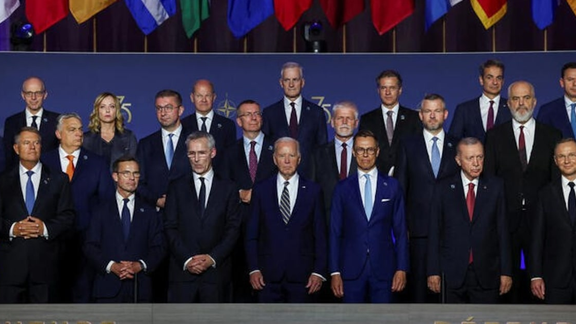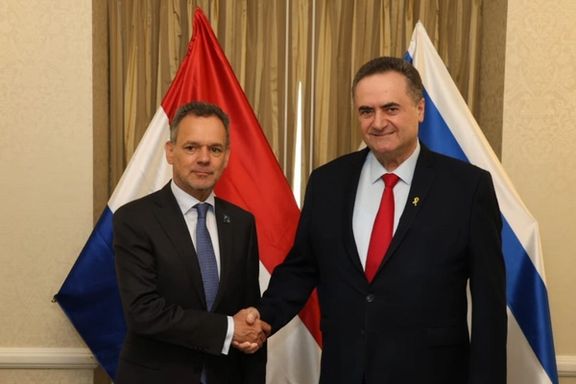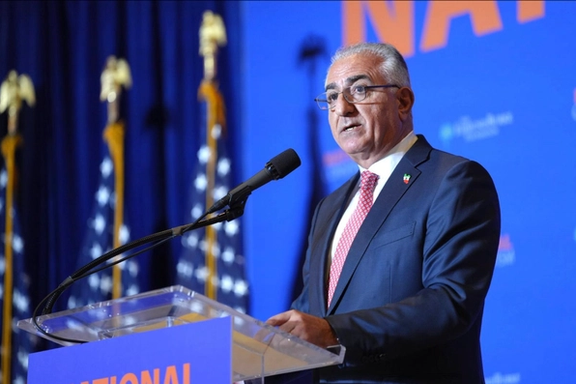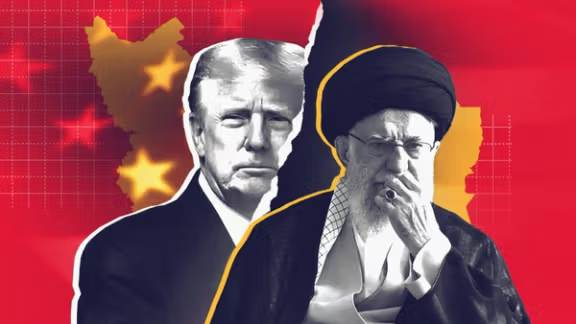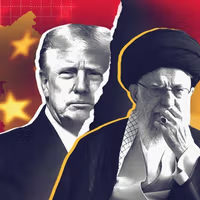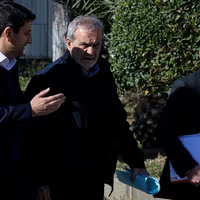“I want to see the Iranian government reverse direction. To stop harassing and abusing the population in Iran and here in Canada,” said Pierre Poilievre, referencing reports that Canadian residents who were targeted by state-linked actors.
“The regime is evil,” said Poilievre speaking at a roundtable news conference with Canadian media Tuesday in Surrey, British Columbia.
“We will confront the Iranian regime at every step.”
Masoud Pezeshkian won Iran’s snap presidential election by securing 16,384,403 votes, according to official figures on July 6. His ultraconservative contender Saeed Jalili won 13,538,179 votes in a runoff election boycotted by more than 50% of eligible voters.
Poilievre said he plans to direct the Canadian Border Services Agency (CBSA) and Immigration officials to deport “non-citizens who are linked to the Iranian regime.”
Canadian immigration authorities have initiated deportation proceedings against five suspected senior Iranian government officials residing in Canada. The CBSA alleged that these individuals held senior positions in Iran’s government. The Trudeau government adopted sanctions in November 2022, barring individuals linked to the Iranian state from entering Canada, with the first deportation order related to that, initiated in February 2024.
In November 2023, Poilievre called for immediate action against Iran, in the wake of a Global News report revealing the extent of the Islamic Republic’s interference in Canada.
A Global News year-long investigation had uncovered upwards of 700 regime- linked associates operating on Canadian soil, and reportedly threatening members of the diaspora who speak out against them. That report also revealed that prominent women’s rights activist Masih Alinejad was advised by the FBI not to travel to Canada for her safety.
The leader of the federal Opposition said his policy would ensure that Canadians would “no longer have to see regime officials in gyms and restaurants enjoying their mansions that’s paid for by money stolen from the Iranian people.”
In Dec 2022, Canada sanctioned Morteza Talaei, a high-profile former Tehran police chief after his appearance at a Toronto-area gym the year prior sparked outrage. Talaei, a retired second brigadier general with the IRGC was in charge of Tehran's police in 2003 when Iranian-Canadian photojournalist Zahra Kazemi was beaten to death in custody.
Canada’s Public Safety Minister Dominic LeBlanc announced the proscription of Iran’s Islamic Revolutionary Guard Corps (IRGC) as a terror organization at an official news conference in Ottawa on June 19.
That was after six years of Conservative motions pushing to have the IRGC on the Canadian terror list. The Iranian community in Canada has been pressuring the Canadian government to take action, especially the families of those killed onboard flight PS752, which was shot down a few minutes after takeoff from Tehran’s international airport in January 2020.
The listing process stems from the Anti-Terrorism Act of 2001 and is set out in section 83.05 of the criminal code.
That aspect of the criminal code specifies that it’s a crime to provide property or financial services that could benefit a terrorist group, which means law enforcement will be able to charge those who support the IRGC financially or materially. Those measures include freezing assets and deportation if a crime is committed.
Speaking on Iran International’s English Podcast ‘Eye for Iran’ recently, Canada’s Conservative Deputy leader Melissa Lantsman accused the Liberal government of deliberately leaking its plan to designate the IRGC as a terror entity.
During Tuesday’s news conference, Poilivere said he would ensure that the ban on the IRGC is “actually enforced.”
He also declared that he would “bring in the most devastating sanctions” against Iran.
"The regime is evil. It is targeting its citizens. It's harassing our citizens in this country. I believe it was behind the October 7th attack. I believe that it. We know that they killed 55 Canadian citizens, 30 permanent residents in the [PS] 752 attack. We need to hold them accountable at the International Criminal Court for this. A terrorist attack on our country. And that will be my approach in dealing with the regime in Tehran,” Poilievere said.
